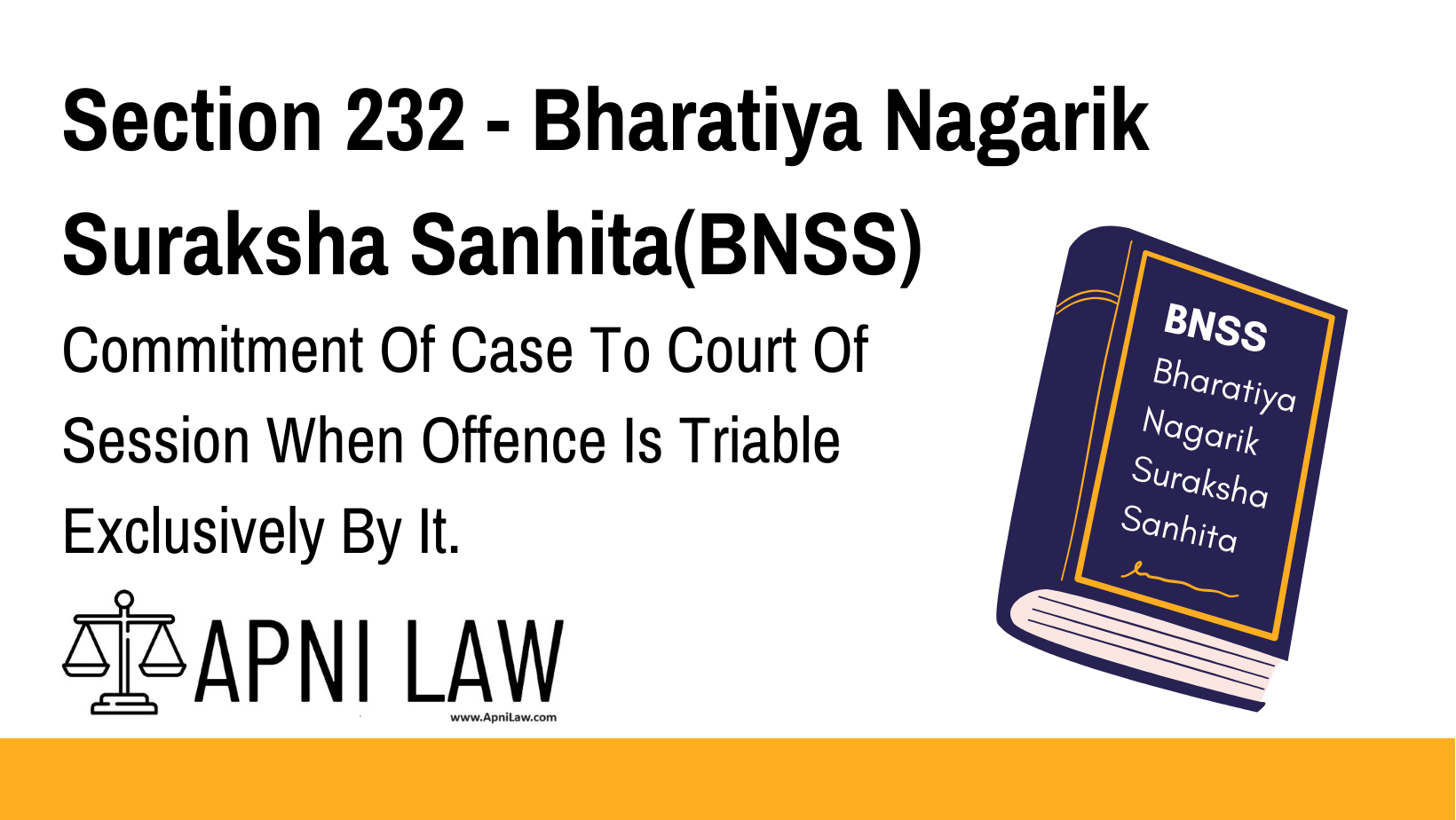Code:
When in a case instituted on a police report or otherwise, the accused appears or is brought before the Magistrate and it appears to the Magistrate that the offence is triable exclusively by the Court of Session, he shall—
(a) commit, after complying with the provisions of section 230 or section 231 the case to the Court of Session, and subject to the provisions of this Sanhita relating to bail, remand the accused to custody until such commitment has been made;
(b) subject to the provisions of this Sanhita relating to bail, remand the accused to custody during, and until the conclusion of, the trial;
(c) send to that Court the record of the case and the documents and articles, if any, which are to be produced in evidence;
(d) notify the Public Prosecutor of the commitment of the case to the Court of Session:
Provided that the proceedings under this section shall be completed within a period of ninety days from the date of taking cognizance, and such period may be extended by the Magistrate for a period not exceeding one hundred and eighty days for the reasons to be recorded in writing:
Provided further that any application filed before the Magistrate by the accused or the victim or any person authorised by such person in a case triable by Court of Session, shall be forwarded to the Court of Session with the committal of the case.
Explanation:
This section deals with the procedure to be followed when a Magistrate finds that an offence, for which a case has been instituted, is triable exclusively by the Court of Session. In such cases, the Magistrate is obligated to commit the case to the Court of Session.
Procedure outlined in the section:
- (a) Commitment to Court of Session: After complying with the provisions of Section 230 or 231 (relating to examination of witnesses and recording of evidence), the Magistrate shall commit the case to the Court of Session. The accused is remanded to custody until the commitment is made, subject to the provisions of bail.
- (b) Remand during trial: The accused is further remanded to custody during the trial and until its conclusion, again subject to the provisions of bail.
- (c) Sending records to Court of Session: The Magistrate sends the case record, documents, and articles to be produced as evidence to the Court of Session.
- (d) Notification to Public Prosecutor: The Magistrate informs the Public Prosecutor about the commitment of the case to the Court of Session.
Time limit for completion of proceedings:
The proceedings under this section must be completed within 90 days from the date of taking cognizance. This period can be extended by the Magistrate for a maximum of 180 days, but only for reasons recorded in writing.
Forwarding of applications:
Any applications filed before the Magistrate by the accused, victim, or their authorized representatives in a case triable by the Court of Session shall be forwarded to the Court of Session along with the committal of the case.
Illustration:
Imagine a case involving murder. The Magistrate, after conducting the initial proceedings, finds that the offence is triable exclusively by the Court of Session. The Magistrate will then commit the case to the Court of Session, remand the accused to custody, send the relevant documents, and inform the Public Prosecutor.
Common Questions and Answers:
Q: What is the purpose of this section?
A: This section ensures that cases triable exclusively by the Court of Session are properly transferred to that court and that the necessary legal procedures are followed during this transfer.
Q: Why is there a time limit for completing the proceedings under this section?
A: The time limit is intended to ensure that the process is swift and efficient, preventing undue delays in the justice system.
Q: What happens if the Magistrate fails to comply with the time limit?
A: The failure to comply with the time limit can be challenged in higher courts. It is important to note that the Magistrate can extend the time limit for specific reasons, which must be documented in writing.








